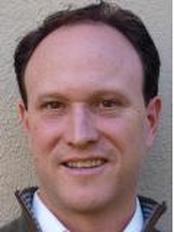|
Ted Hutman, PhD
Licensed Clinical Psychologist |
AboutDr. Hutman is a clinical and developmental psychologist whose research interests include autism and social emotional development. He is an Assistant Clinical Professor in the Department of Psychiatry and Biobehavioral Sciences at the David Geffen School of Medicine at UCLA. He teaches social skills to teens and their parents through the PEERS Program at UCLA. He received Bachelor’s and Master’s degrees in Modern Thought & Literature from Stanford University. After a stint as orchestra manager of the Los Angeles Philharmonic, he pursued doctoral and post-doctoral training in psychology at UCLA. Dr. Hutman's post-doctoral training was funded in part by a grant from the Eunice Kennedy Shriver National Institute of Child Health and Human Development and he is the recipient of a career development award from the National Institute of Mental Health. He is a member of the American Psychological Association and he is a licensed clinical psychologist in the state of California (PSY 25204).
|
Supported Research |
Dr. Hutman's research has been supported by the Mattel Corporation, the UCLA Clinical Translational Science Institute, the Friends of the Semel Institute, the UCLA Department of Psychology, the UCLA Graduate Division, the FPR/UCLA Center for Culture, Brain & Development, the UCLA Intellectual & Developmental Disabilities Research Center, and the UCLA Center for Autism Research & Treatment.
|
Current Studies |
Dr. Hutman is an investigator on a longitudinal study about the onset of autism during infancy, part of the NIH-funded Autism Center of Excellence at UCLA. He is also currently conducting longitudinal research with infant siblings of children with autism as part of the NIH/NICHD-funded Autism Center of Excellence at the UCLA Center for Autism Research & Treatment and with a career-development award from the National Institute of Mental Health. This research integrates behavioral, eye-tracking, electrophysiological, neuro-imaging, and genetic methodologies to characterize autism during infancy and, thereby, to improve efforts to screen infants for autism.
|

